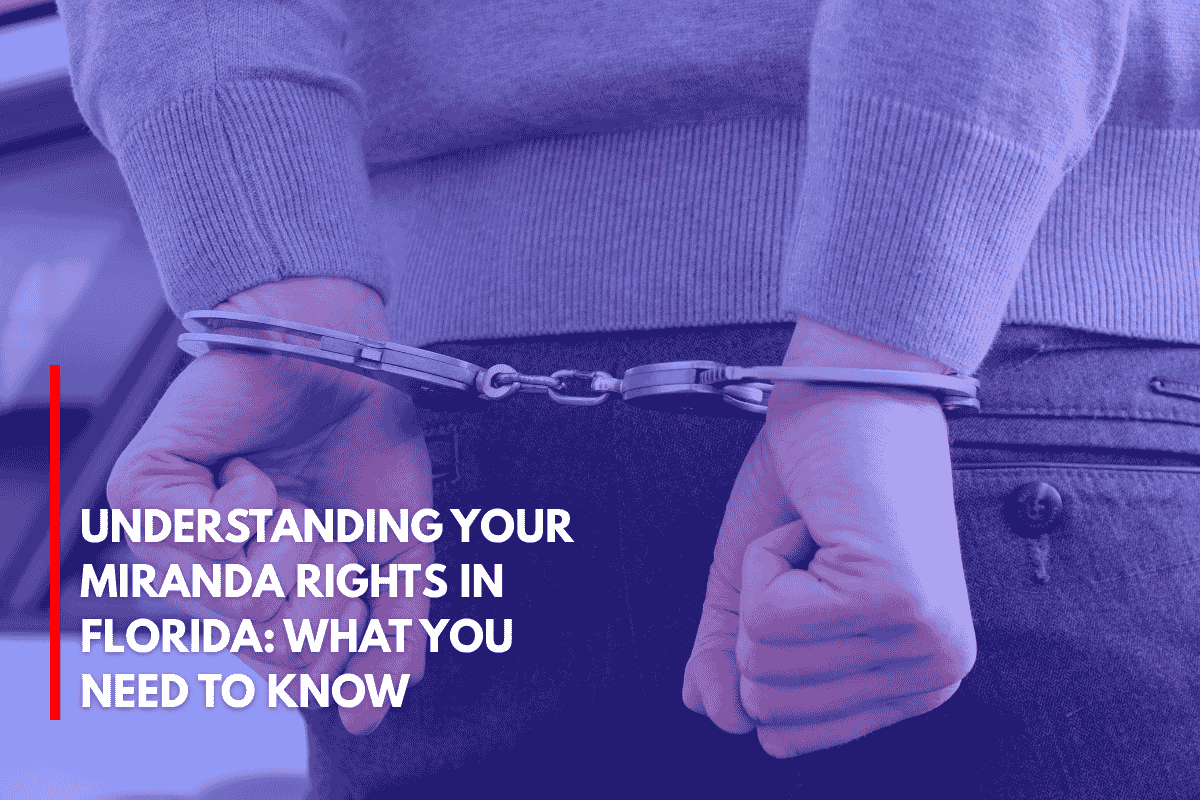Understanding your Miranda rights in Florida is essential if you are ever taken into police custody and questioned. These rights are designed to protect you from self-incrimination and to ensure you are treated fairly by law enforcement.
What Are Miranda Rights?
Miranda rights are a set of warnings that police must give you if you are in custody and being interrogated. They stem from the landmark U.S. Supreme Court case Miranda v. Arizona (1966), which established that individuals must be informed of their constitutional rights before police questioning. The standard Miranda warning includes:
You have the right to remain silent.
Anything you say can and will be used against you in a court of law.
You have the right to an attorney.
If you cannot afford an attorney, one will be appointed for you.
When Do Miranda Rights Apply?
Miranda rights apply only if you are both in custody and being interrogated.
In custody means you are not free to leave—for example, you have been arrested or are otherwise restrained.
Interrogation means police are asking you questions about a crime.
If you are not in custody or not being interrogated, police do not have to read you your Miranda rights. For example, during a routine traffic stop or a brief conversation, Miranda warnings are not required unless you are in custody and being questioned about a crime.
What If Police Do Not Read You Your Miranda Rights?
If you are in custody and interrogated without being read your Miranda rights, any statements you make may not be used against you in court. This is called the “exclusionary rule.” However, the absence of a Miranda warning does not mean your arrest is illegal—it only affects the admissibility of your statements as evidence.
How to Invoke Your Miranda Rights
To protect yourself, you must clearly invoke your rights. Simply staying silent is not enough—you should say something like:
“I invoke my right to remain silent. I want to speak to an attorney before answering any questions.”
Once you invoke your rights, police must stop questioning you. If they continue, your attorney may be able to have any statements you make excluded from evidence.
Key Points to Remember
Miranda rights are required only during custodial interrogation.
If you are not in custody or not being interrogated, Miranda does not apply.
If police fail to read you your rights in the required circumstances, your statements may be excluded from court.
You must clearly invoke your right to remain silent and request an attorney.
Miranda rights do not apply to routine questions (name, address, etc.) or to spontaneous statements.
Understanding and asserting your Miranda rights is a crucial part of protecting yourself in the criminal justice system. If you believe your rights have been violated, consult with a criminal defense attorney immediately.
Sources:
- https://www.muscalaw.com/blog/what-if-police-didnt-read-me-my-miranda-rights
- https://criminaldefenseattorneytampa.com/legal-defenses/miranda/
- https://south-floridaattorney.com/understanding-your-florida-miranda-rights/











Leave a Reply